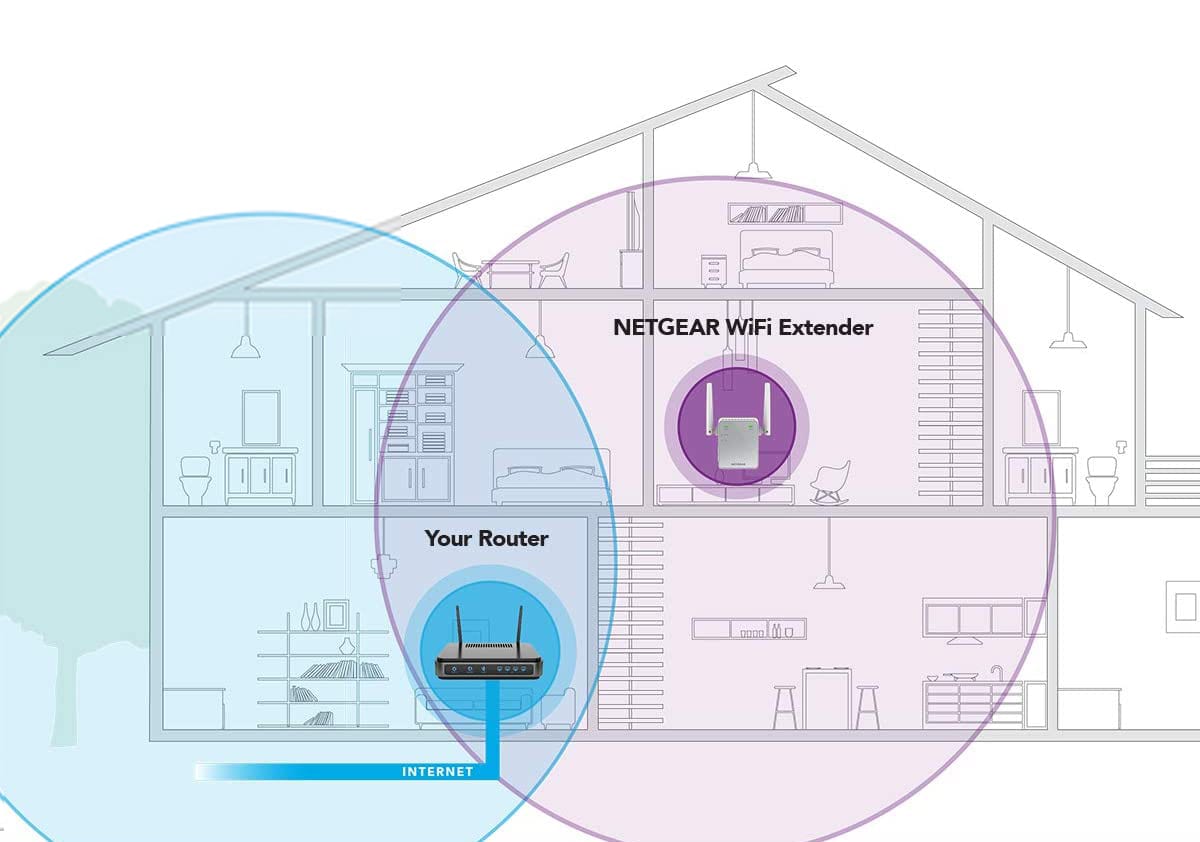WiFi Booster Vs WiFi Extender: Which One Is Right For You?
When it comes to improving your home or office internet connection, understanding the difference between a WiFi booster and a WiFi extender is crucial. Both devices aim to enhance your wireless signal, but they do so in different ways. In this article, we will explore the key differences, advantages, and disadvantages of each option, helping you make an informed decision about which device suits your needs best.
In today's digital age, a strong and reliable internet connection is more important than ever. Whether you’re streaming your favorite shows, working from home, or gaming, a weak WiFi signal can lead to frustration and interruptions. This is where WiFi boosters and extenders come into play, offering solutions to enhance your connectivity. Understanding these tools can empower you to optimize your network and ensure seamless internet access throughout your space.
We will delve deep into the definitions, functionalities, and performance comparisons of WiFi boosters and extenders, offering insights into their installation processes, cost-effectiveness, and real-world applications. By the end of this article, you’ll have a clearer picture of which device can help you achieve the best WiFi coverage for your specific situation.
Table of Contents
- Definition of WiFi Booster and WiFi Extender
- How Do WiFi Boosters and Extenders Work?
- Advantages of WiFi Boosters
- Disadvantages of WiFi Boosters
- Advantages of WiFi Extenders
- Disadvantages of WiFi Extenders
- Which One Should You Choose?
- Conclusion
Definition of WiFi Booster and WiFi Extender
A WiFi booster, often referred to as a WiFi amplifier, is a device that enhances the existing WiFi signal. It works by receiving the signal from your router and amplifying it, thereby extending the range without creating a new network. This means that devices connected to the booster will still be on the same network as your main router.
On the other hand, a WiFi extender, also known as a repeater, connects to your existing network and creates a new network to extend the range of your WiFi. This can be beneficial in larger homes where the signal might weaken in certain areas, but it can lead to slower speeds due to the way it transmits data.
How Do WiFi Boosters and Extenders Work?
Understanding how each device operates can help you determine which is the right fit for your needs. Here’s a breakdown of their functionalities:
WiFi Booster Functionality
- Connects directly to the existing WiFi signal.
- Amplifies and retransmits the existing signal.
- Keeps the same network name (SSID) for seamless connectivity.
WiFi Extender Functionality
- Connects to the existing WiFi network but creates a new SSID.
- Can provide better coverage in hard-to-reach areas.
- May result in lower speeds due to the way it communicates.
Advantages of WiFi Boosters
WiFi boosters come with several benefits that make them an attractive option for many users:
- Improved signal strength in weak areas.
- Easy setup and installation process.
- Maintains the same network name for seamless connectivity.
Disadvantages of WiFi Boosters
Despite their advantages, WiFi boosters also have some drawbacks:
- May not be effective in very large homes or spaces.
- Performance can be limited if the original signal is weak.
- Potential for signal interference from other devices.
Advantages of WiFi Extenders
WiFi extenders offer unique benefits that make them suitable for certain environments:
- Can cover larger areas by creating a new network.
- Better performance in areas with significant obstacles.
- Ideal for multi-story homes or large buildings.
Disadvantages of WiFi Extenders
However, there are some challenges associated with WiFi extenders:
- Can result in slower speeds due to the two-step communication process.
- May require additional configuration to set up.
- Different SSID may confuse users when switching networks.
Which One Should You Choose?
Deciding between a WiFi booster and a WiFi extender depends on your specific needs:
- If you have a small to medium-sized home and just need to enhance a weak signal, a WiFi booster is likely the more efficient choice.
- For larger homes or spaces with multiple floors, a WiFi extender may provide better coverage and performance.
- Consider your internet usage habits. If you frequently stream videos or play online games, a reliable WiFi extender could be a better option to ensure consistent speed.
Conclusion
In conclusion, both WiFi boosters and extenders serve the purpose of enhancing your WiFi coverage, but they do so in different ways. Understanding their functionalities, advantages, and disadvantages is crucial for making an informed decision. Whether you choose a WiFi booster for simplicity or a WiFi extender for extensive coverage, optimizing your internet connection is essential in today’s connected world. Take the time to evaluate your specific needs and choose the device that best fits your situation. If you found this article helpful, feel free to leave a comment, share it with others, or explore more of our content for additional insights.
Thank you for reading! We invite you to visit our site again for more informative articles and updates.
Tia And Tamera: A Deep Dive Into The Lives Of Twin Sisters
New York Giants Score: A Comprehensive Analysis Of The Season
A Comprehensive Guide To Aire Stock: Understanding Its Significance In Today's Market



